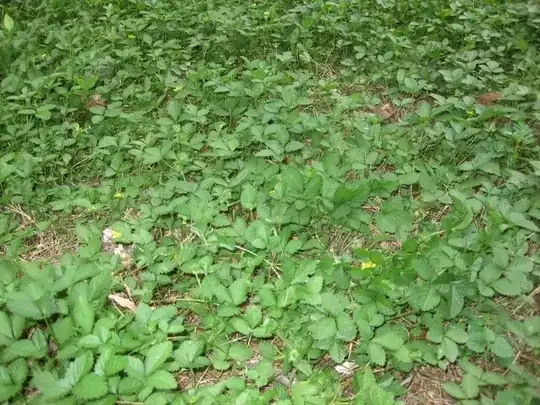Any organic gardener will tell you Round Up damages the ground. It will cause resulting weed problems that last for years. It's also not organic.
A rototiller won't be of any help. It's better not to disturb the ground. Once the weeds are killed some other way a rototiller will just stir things up. If you use a rototiller when you still have weeds, it will just break them into tiny pieces that will regrow and make a mess.
A weed burner won't kill established weeds.
This is a reasonable area to use black plastic on. I suggest not thinking about it as an area you will transform overnight, but rather over a few years. You could think about covering a quarter of it at a time, then you don't need to buy so much plastic. The best plastic to use is woven landscape plastic, that will let through water and air. Unwoven plastic will kill all life in the ground, and it will take time to recover from this. Also unwoven plastic will stick and become a mess if you leave it too long. Black plastic takes about 6 months to completely kill weeds, not just a few weeks like someone said above.
A nice, organic and renewable way to kill the weeds is with wood chips or bark. You'll need a lot, it'll have to be delivered by truck. It'll be a little pricey. You'll need about 80 yards. You'll want an initial layer about 6 inches or thicker. As it kills the weeds it'll rot, feed the ground and get thinner. You can rake holes in it to put plants, or move it from one side of the yard to the other to maintain thickness. After about 2 years it'll mostly be gone, and you'll be left with rich weed free ground. When you get tired of the bark, you can rake it into a compost pile.
